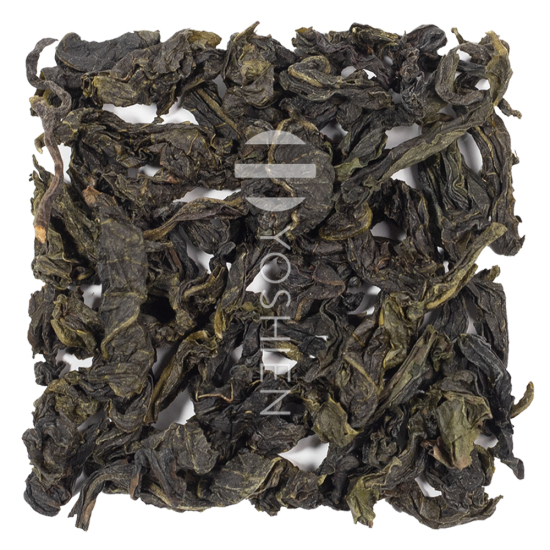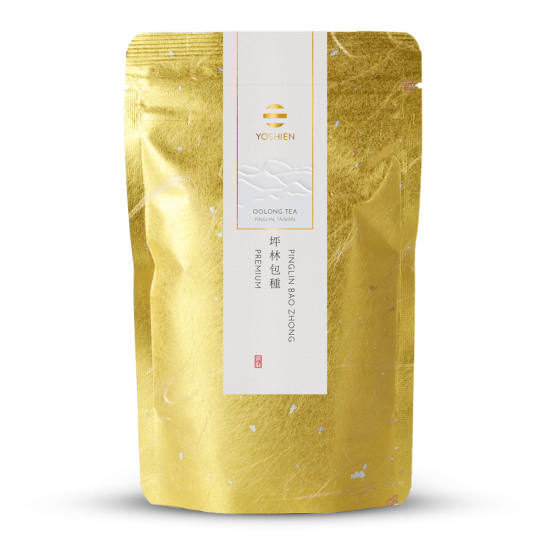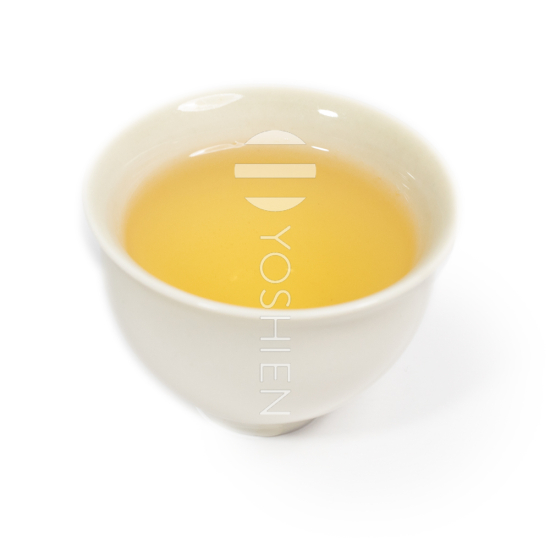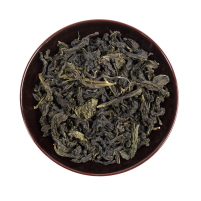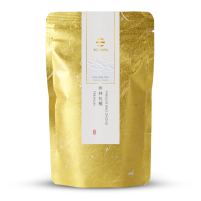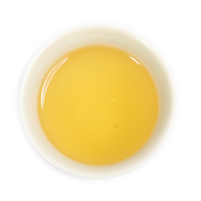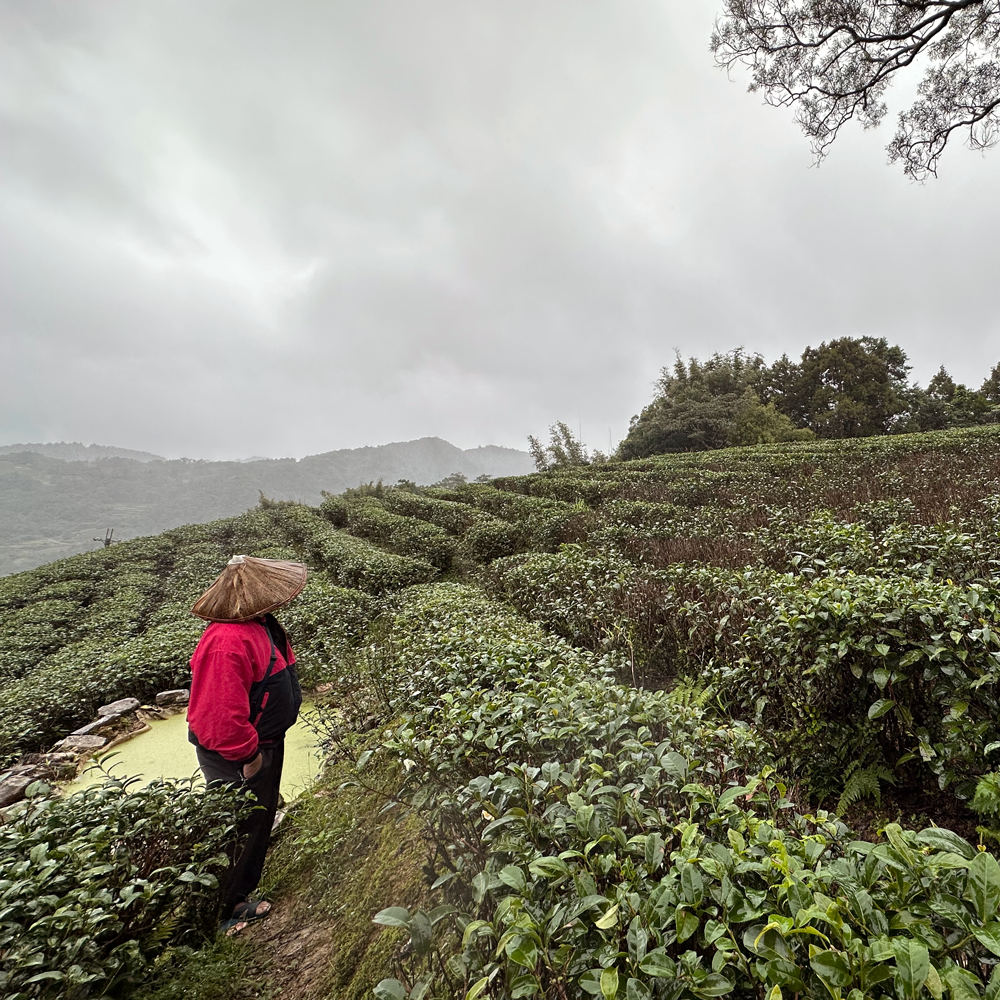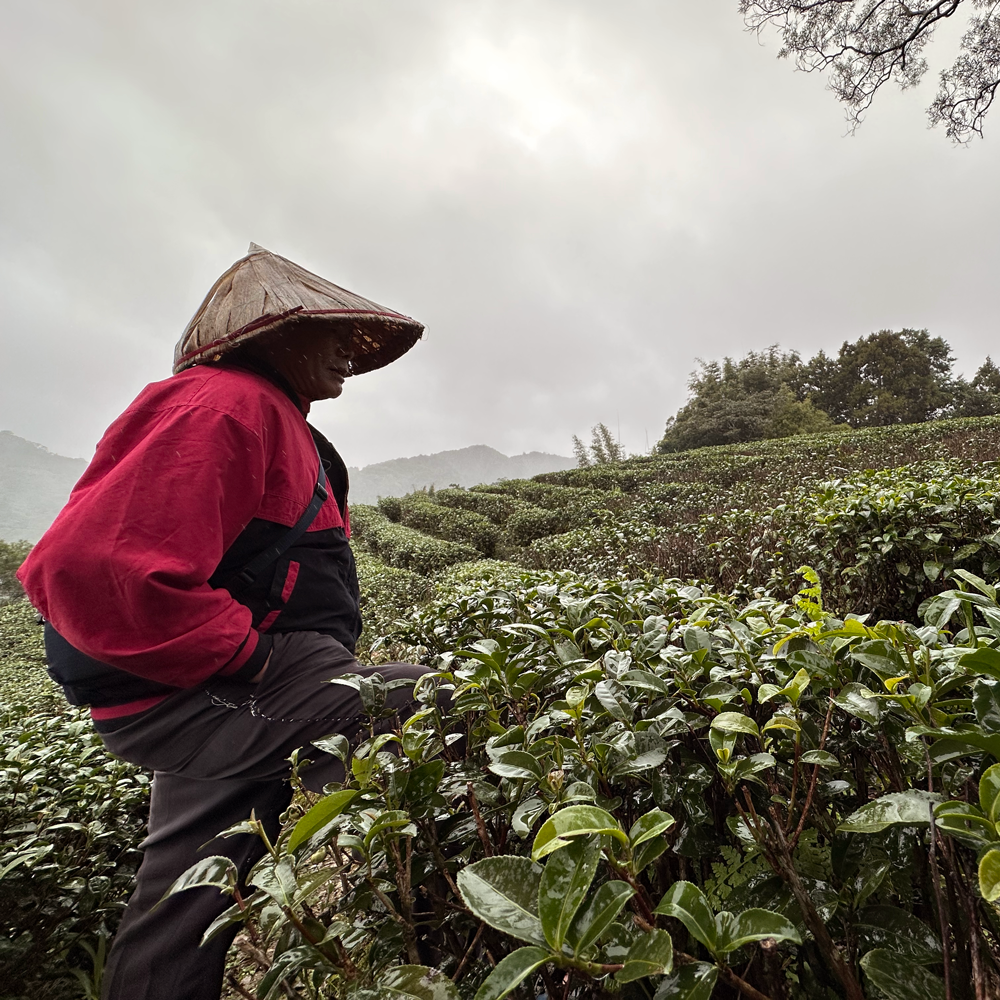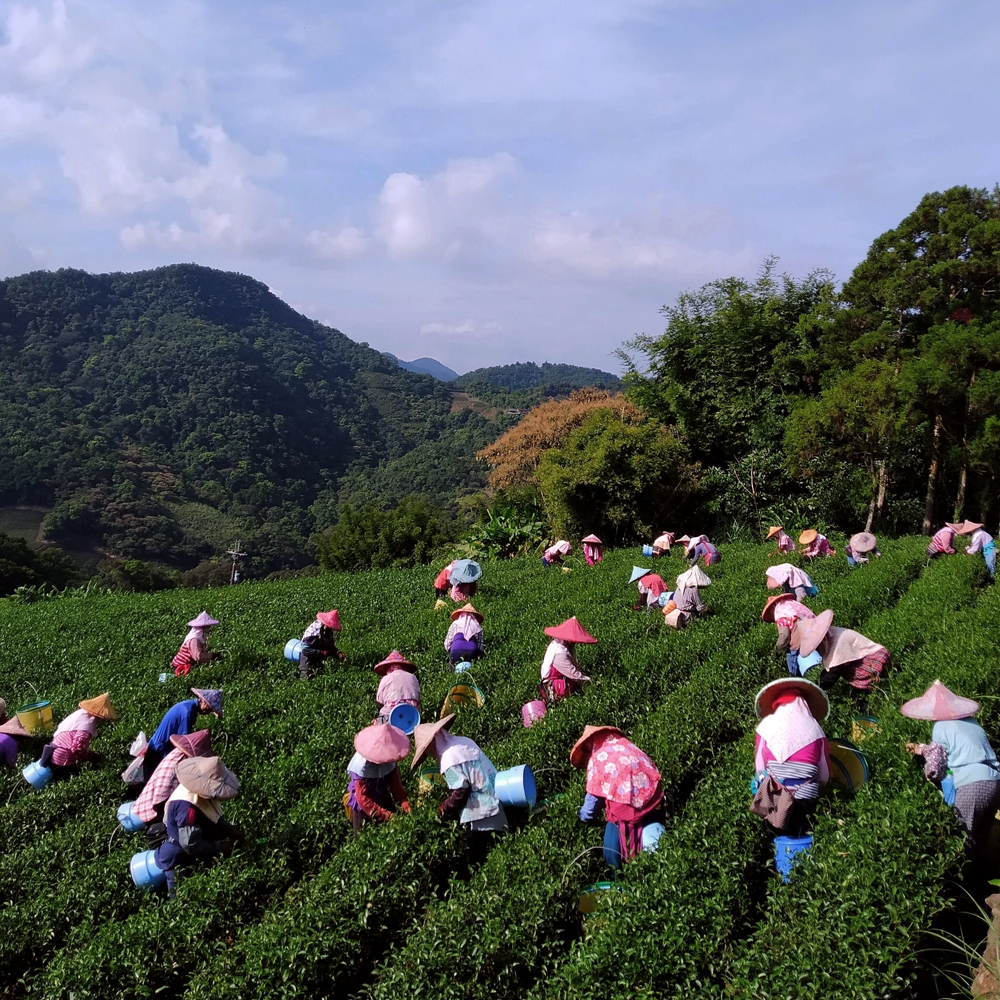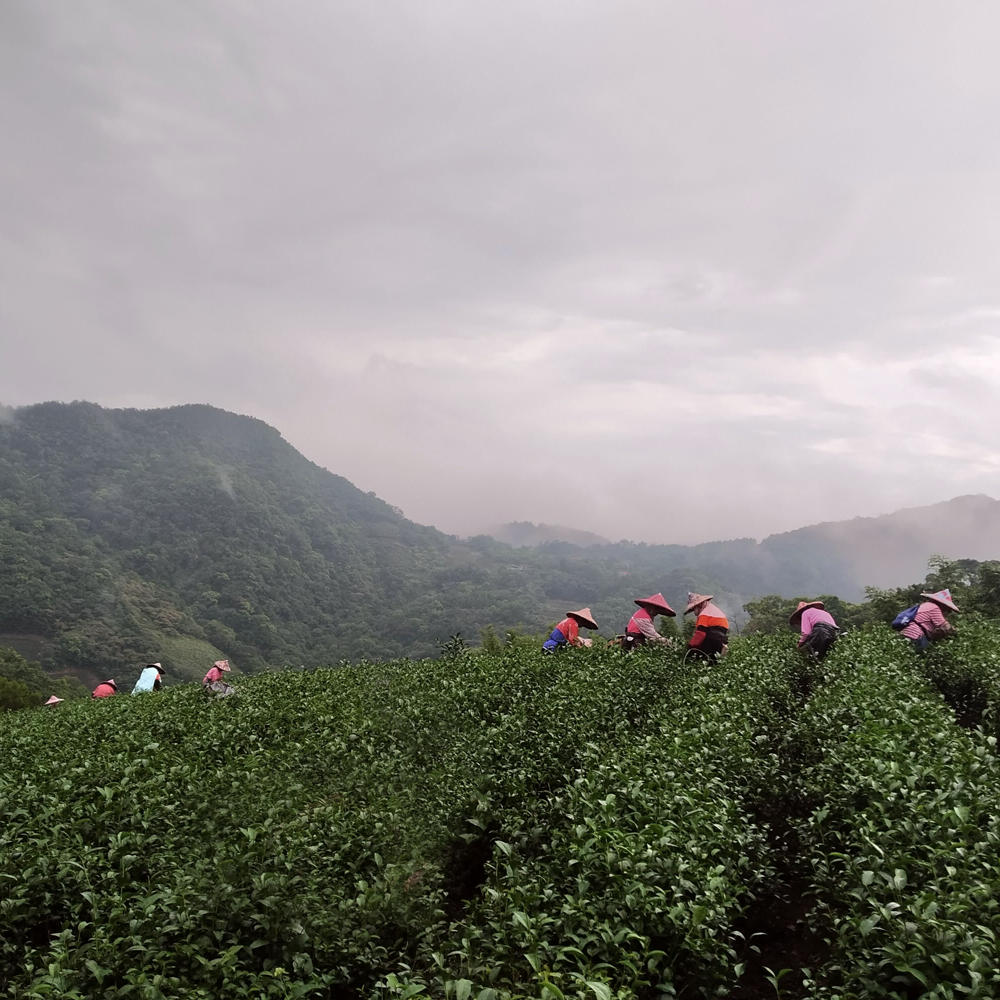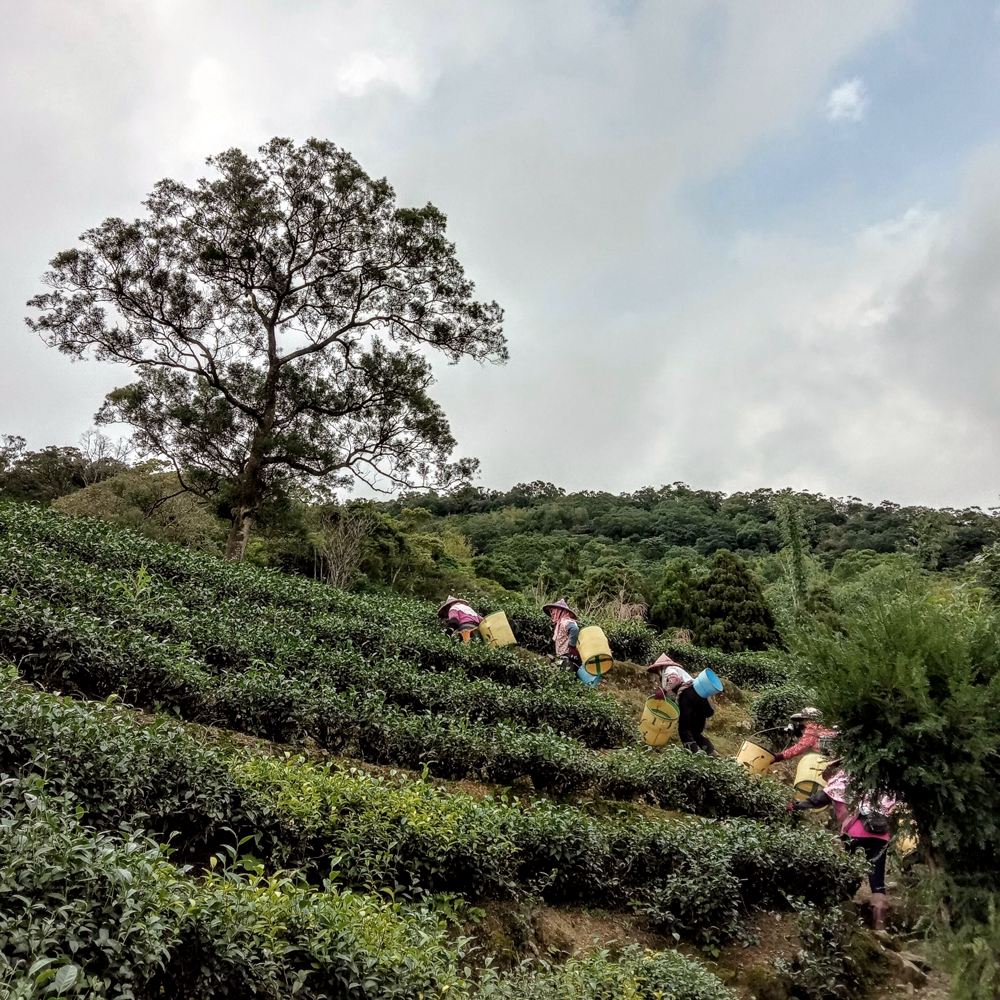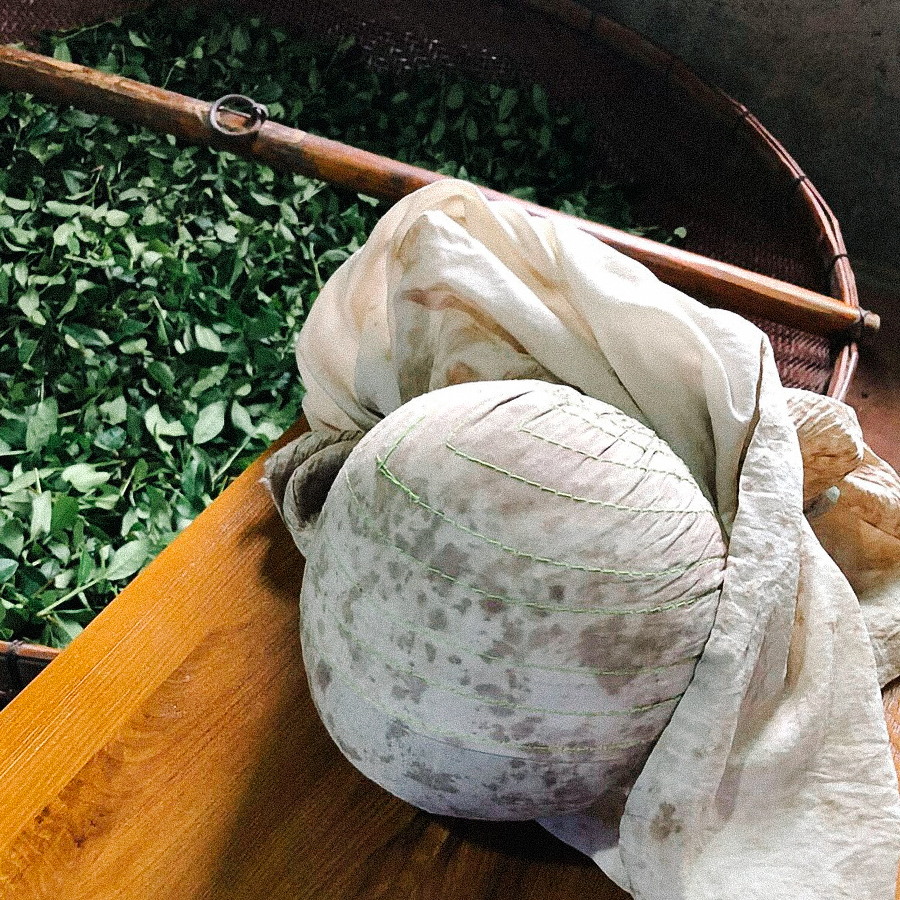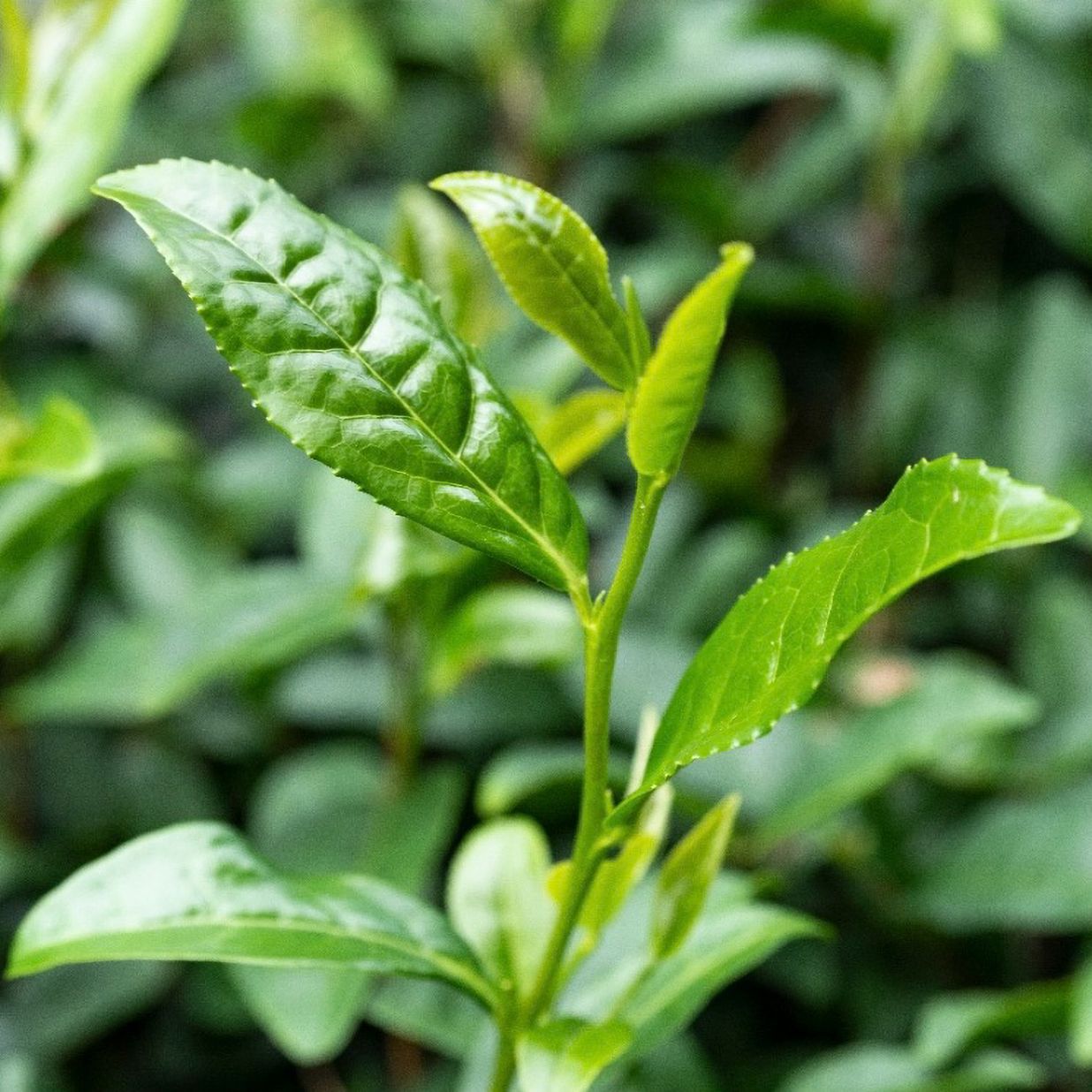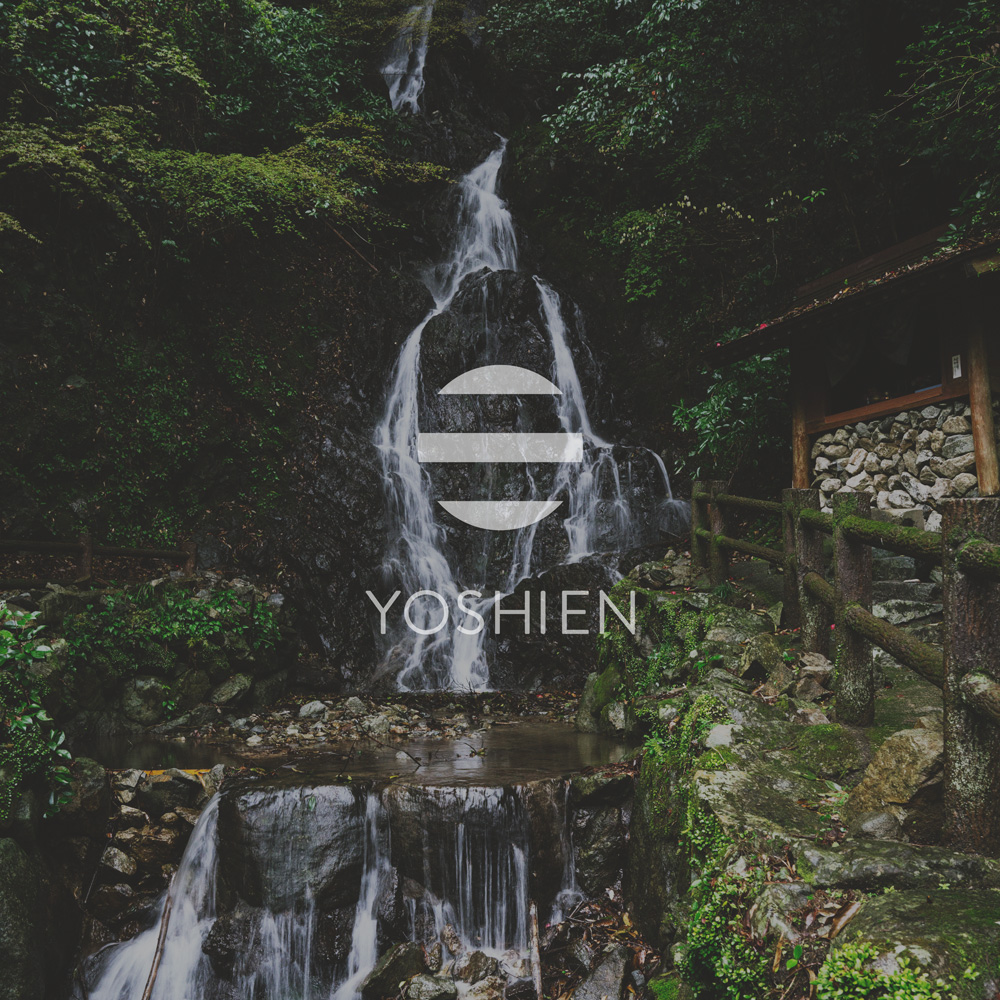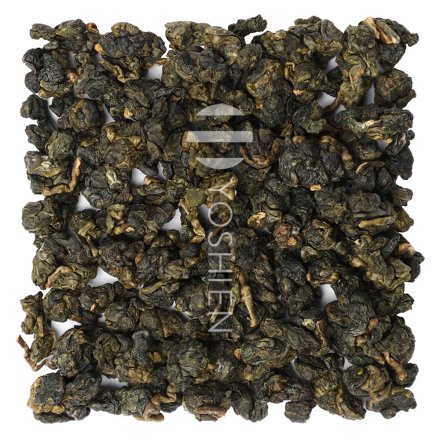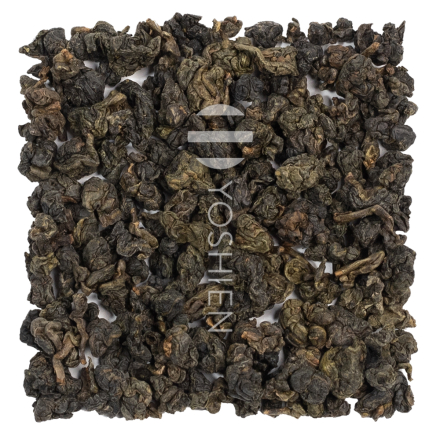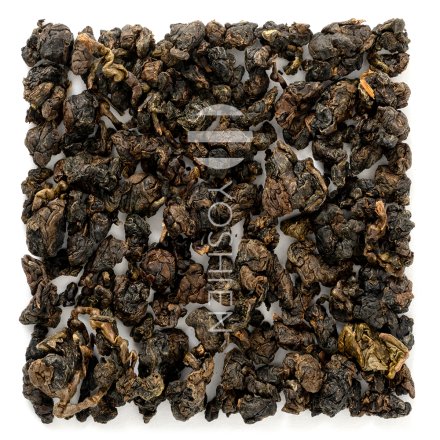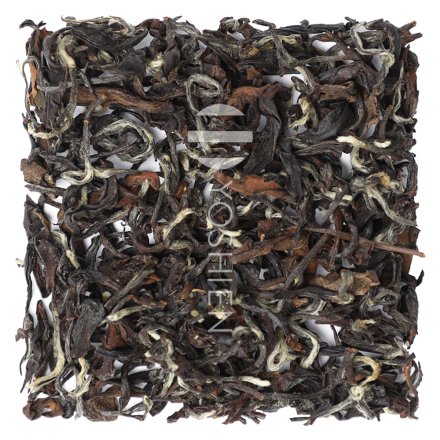Special features in location, cultivation and processing
The landscape around Pinglin is mostly hilly and devoted almost entirely to tea cultivation. The entire area has been designated a water protection zone, making it especially suited for sustainable farming. Pinglin is best known for its lightly oxidised Bao Zhong (Pouchong) Oolong tea.
Several features set Bao Zhong apart from typical Taiwanese Oolongs, the first being its low degree of oxidation. While in recent decades many established Taiwanese teas (such as Dong Ding or the numerous High Mountain Oolongs) have tended towards lighter oxidation, Bao Zhong has always been produced in this way. It is the lightly oxidised Oolong of Taiwan and remains its signature style. With its very light, floral flavour and greenish colour, many mistake Bao Zhong for a green tea. The crucial distinction, though, lies in its delicate roasting.
In addition to its minimal oxidation, the leaf shape is another key feature: unlike the tightly rolled ball form typical of most Taiwanese Oolongs, Bao Zhong leaves are twisted into elegant, crinkled strips.
Single Origin
This tea comes 100% from the above-mentioned tea fields in Pinglin, directly sourced from the farmer.




